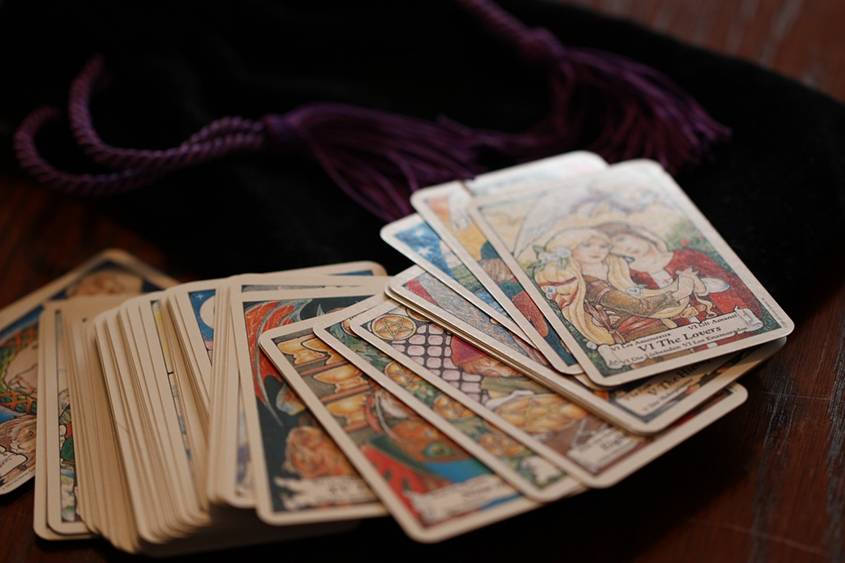
In my kids’ assessments, I often need to discover what motivates the kids, so I play wizard games with them.
I believe that wanting is the essence of life. This is the battery that keeps us moving. I know that many parents tell their kids that life is not about what they want, when they really want to say that in life, we do not always get what we want. This is true, but I think they are making a mistake. Life is all about wanting.
Even in Buddhism, the intention or desire is what starts everything. Without it, we do nothing at all. We do not think, do not feel, do not do, do not move, do not connect and do not even search for happiness and good life. Without wanting, life has not meaning.
What do you want?
This is a simple question and your answer reveals a lot about you. I teach my clients to ask themselves this question from time to time and answer it.
It is hard for most grownups to answer this question and even harder for children. Adults almost always say what they do not want or what they want other people to do. This only highlights how powerless they feel and how out of control they are.
Children, on the other hand, usually make a shopping list. If we teach it to them when they are young and focus on what they can do to make it happen, they will never grow up having no control over their own life. They will know what they want and they will go for it full tilt.
Wanting is like a muscle. You either use it or you lose it. If you practice wanting, you become good at it. If you do not practice, your desires grow weak and life becomes a series of burdens. This is a fundamental understanding of human motivation.
During assessments, I ask the kids, “What would you do if you were a wizard?” Then, I write down their answers and pay close attention to their facial expressions and tone of voice.
Some kids are so excited to play this game that their face lights up and they are on a roll. They answer and answer and answer and the joy on their face is contagious.
Some kids give me a puzzled look and do not have an answer. Their “wanting muscle” is so weak that they cannot come up with anything. Not even a shopping list. Those children are harder to motivate. If they have some challenges at school, at home, with feelings, with homework, with friends or with health, it is hard to help them change when they have no incentive.
So in order to work with them, I must first teach them how to want. Once their “wanting muscle” is active, we can use it to change things and do things differently. Usually, I ask their parents to work on this for three weeks and then I start working with the kids. When the kids’ “wanting muscle” is stronger, their emotional battery can be charged and the things we do together have more meaning.

Wizard Games
So here is the simple game that strengthens the wanting muscle in just three weeks. The game has many versions and I will share them all here. It is better to play it as a family during dinner, travel, cleaning or anything that allows everyone to share.
In our family, we play different versions from time to time. Always, after the game, we are all highly motivated to do things differently.
All you do is get everyone to imagine what they would do if they had some imaginary power, great skill or lots of resources and you are ready to play.
Powerful Wizard or Fairy
Ask, “What would you do if you were a powerful wizard (or fairy)?”
Remember, you are searching for desires for feelings, so no judgment. Make sure everyone feels free to express what they imagine without fear. If there are any communication challenges, limit each person to 2-3 minutes to give everyone a chance to express themselves.
Winning the Lotto
Ask, “What would you do if you just won 7 million dollars in the lottery?”
You can choose any number you want, of course. Remember, it is not the amount you want, but the feeling. One of the kids I played this game with said to me, “I would buy me ice cream”. So the number is only supposed to give the feeling of freedom to dream.
Super hero
Ask, “If you were a super hero, which one would you be and why? What would you do with your powers?”
The desire for super powers usually highlights the missing power or a high value. For example, one girl wanted to have healing powers to save all the animals. It is easy to see where we can draw her motivation from.

Change One Thing
Ask, “If you could change one thing in your life, in a flash, what would that be?”
Here, we search for kids’ progress blocks and limiting beliefs. It is a version of the wizard or fairy game, but with a focus on change.
Deserted Island
Ask, “If you knew you had to stay on a deserted island for a year, who would you take with you and why?”
This will help you discover the important people in the kids’ life. Talk about it with them without judgment and use the game to develop critical thinking.
You can also ask, “If you knew you had to stay on a deserted island and you could take 3 things with you, what would you take?” Sometimes you can say the objects cannot be any form of modern technology. Again, use it to develop critical thinking.
Memorial Service
With teens, you can play this game. Ask, “When you die, what would you want people to say about you at your memorial service?”
This is a good game for teens and grownups and can turn on many of their inner motivation buttons to make sure they live a life that they can be proud of. This game also puts many things in perspective and helps prioritize values.
Awards Night
Ask, “If you won an international award, what would it be for?”
You can vary this and refer to getting an Oscar, receiving a Nobel prize or even ask, “What would you like to be famous for?” I find many kids’ values, fears and desires with this game and it is very good for helping people find their purpose in life.
Living Forever
Ask, “What would your life be like if you could live forever?”
If you play this as a family, let the kids start before you say what your thoughts are. The idea is to develop their critical thinking and focus on things they want and things they do not want. This can greatly help develop critical thinking about the problems of living forever.
Going Back in Time
Ask, “What would you do if you could go back in time and change the past? Which bit of the past would you change and why?”
Changing the past is impossible for us (at the moment), but thinking about it is enough to change our perception of the past. Many times, when we revisit a part of our past we do not like and try to change it, we realize that it is not as bad as we remembered. For me as a coach and a mother, it gives an indication of a moment in time that were bad in my child’s perception. Again, no judgment. Only expression.
Role Swap
Ask, “What would do differently if you were the parent (the teacher, the principal, the boss or even the prime minister)?”
I find that putting themselves in others’ shoes is great fir kids, even if what they say seems silly. Once, my husband talked about his boss for a while and kept saying that he could do things better. So we played the role swap game. Then, when the boss left and they were looking for a replacement, he applied for the job, because he had “practiced” doing things better many times before. This practice develops imagination and critical thinking.
Food Heaven
Ask, “If you could eat anything you wanted, what would that be?”
Sometimes, when kids want nothing at all, I tap into this primitive desire for food and search for the things they like to eat. With my own children, this game teaches me what I can prepare or buy to make them happy. If you want more variety, you can get them to choose 10 different food items (favorite dishes).
Do you know how easy it is to make a kid happy when one of the items on her list is “watermelon”?

Freedom
Ask, “If you didn’t have to go to school, what would you do instead?”
Many kids (and grownups) want freedom, but have no idea what to do with it. This is a shame, because we all have some free time we can learn to enjoy. Once, when we played this game, my son, who was a teen, said he would sleep every day until noon. At the time, he had to wake up at 6:30am every day, so no wonder this is what he wanted. Then, I told him, “OK, let’s say you sleep until noon for a week, two weeks or even three weeks. Then what?” He thought about it and smiled. You get the desired sense of freedom and realize that after a while, even this gets boring.
I hope you get the idea of wizard games. Imagining what we would do “if…” makes us consider things that we cannot consider otherwise. Most of all, it give us the permission to want. If it is a game we play as a whole family, our kids learn that their desires and aspirations are valid and acceptable and they give themselves permission to want.
Imagining is like practicing life without the sweat
Ronit Baras
We must separate for children the desire from getting it. Although it is true that we cannot get anything we want in life, but by knowing that we want it, we can already feel much better. It is like practicing life, without the sweat.
Try it with your family!
Happy parenting,
Ronit











